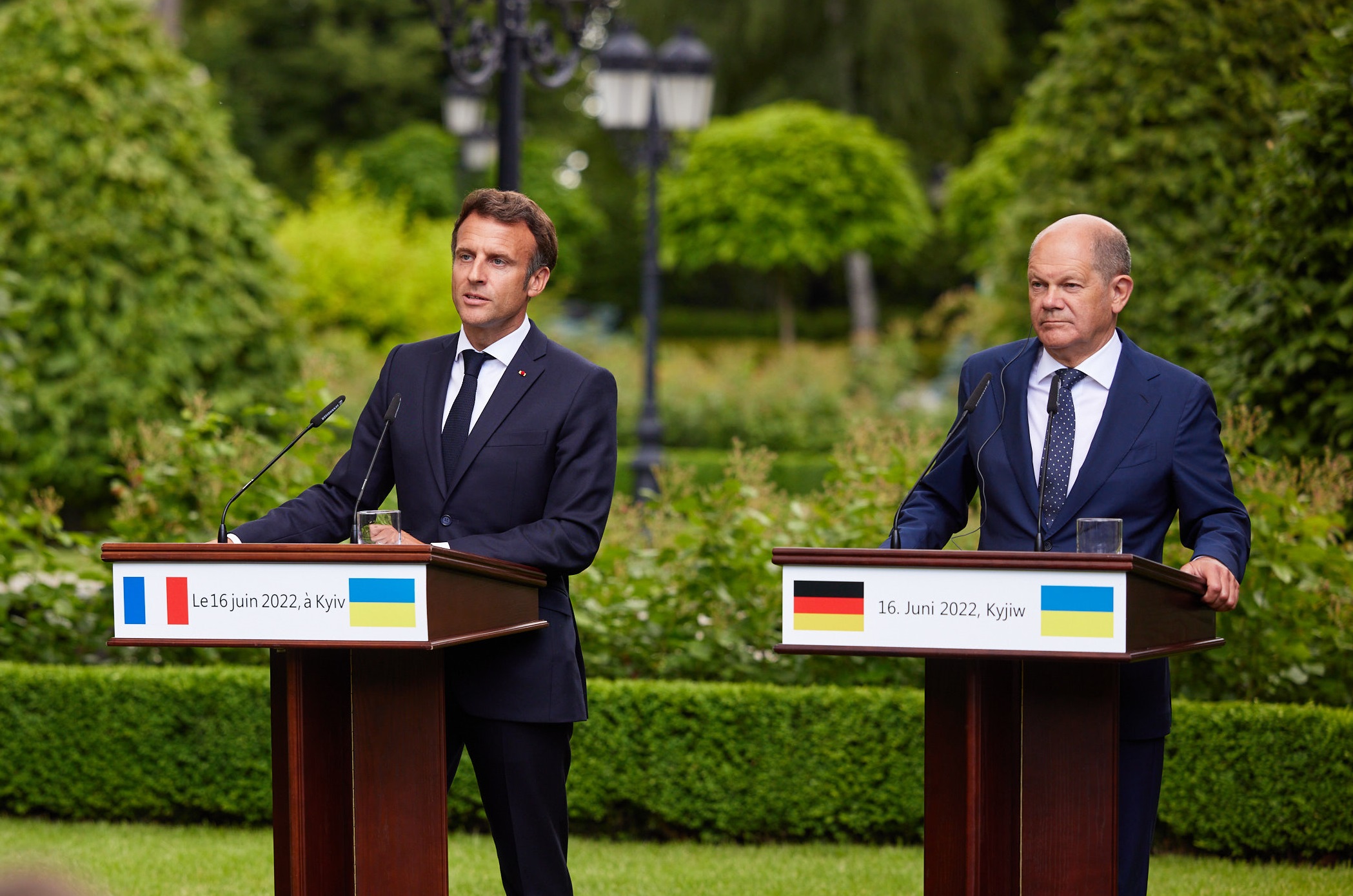Two EU countries, France and Germany, have not backed the proposal which seeks to override Hungary’s veto that blocks more than 6 billion euros in aid to Ukraine.
As reported by Bloomberg, the European External Action Service floated the possibility of allowing member states to make voluntary contributions to the European Peace Facility (EPF), which is used to help fund military equipment. That would allow future funds to flow based on the consent of contributors rather than by unanimous support.
But some member states, including France and Germany, have voiced concerns over setting a precedent that could imperil the future of the EPF as a foreign policy tool, according to people familiar with the matter. Currently, the EPF relies on mandatory contributions based on each member state’s economic weight and requires unanimity for disbursement, Bloomberg writes.
In certain countries, voluntary contributions may require approval by national parliaments, which would add a different layer of complication. The French and German governments declined to provide a formal comment.
For more than a year, Hungary has vetoed disbursements for Ukraine, prompting member states to look for alternative solutions. It’s unclear how much support the voluntary plan will draw, said the people, who were granted anonymity to describe closed-door discussions. Such a move may require the unanimous backing of 27 member states.
Prime Minister Viktor Orban has blocked several EU efforts to assist Ukraine in staving off Russia’s invasion, now approaching its third year. The Hungarian leader, who maintains ties with the Kremlin, was strongly criticized by EU leaders for visiting President Vladimir Putin in Moscow in July, just after taking charge of the bloc’s rotating presidency.
In reaction, the European Commission, the bloc’s executive arm, said it wouldn’t send top officials to a number of informal meetings held in Hungary this year as part of Hungary’s presidency.
The topic of Ukraine aid was discussed by French President Emmanuel Macron and Orban’s teams during a dinner they held together at the Elysee when Orban was visiting on 22 October, according to a person familiar with the matter. During the official dinner, the two leaders touched on how to deepen their cooperation in energy and defense, according to an aide.
Hungary’s intransigence over funding for Ukraine has already prompted discussions among diplomats on how to shield the aid from a veto. Seven packages totaling €3.5 billion have been approved by the EPF since Russia’s full-scale invasion, as well as €2 billion to supply ammunition.
Related:
- Diplomatic dispute erupts between Hungary and Croatia over Ukraine
- Politico: Seven NATO members oppose immediate membership invitation for Ukraine
- Politico: EU eyes new Russia sanctions push as Hungary’s presidency nears end
- Hungary in talks with Gazprom for additional gas supplies in 2025
- EU proposes voluntary contributions to bypass Hungary’s veto on Ukraine aid




